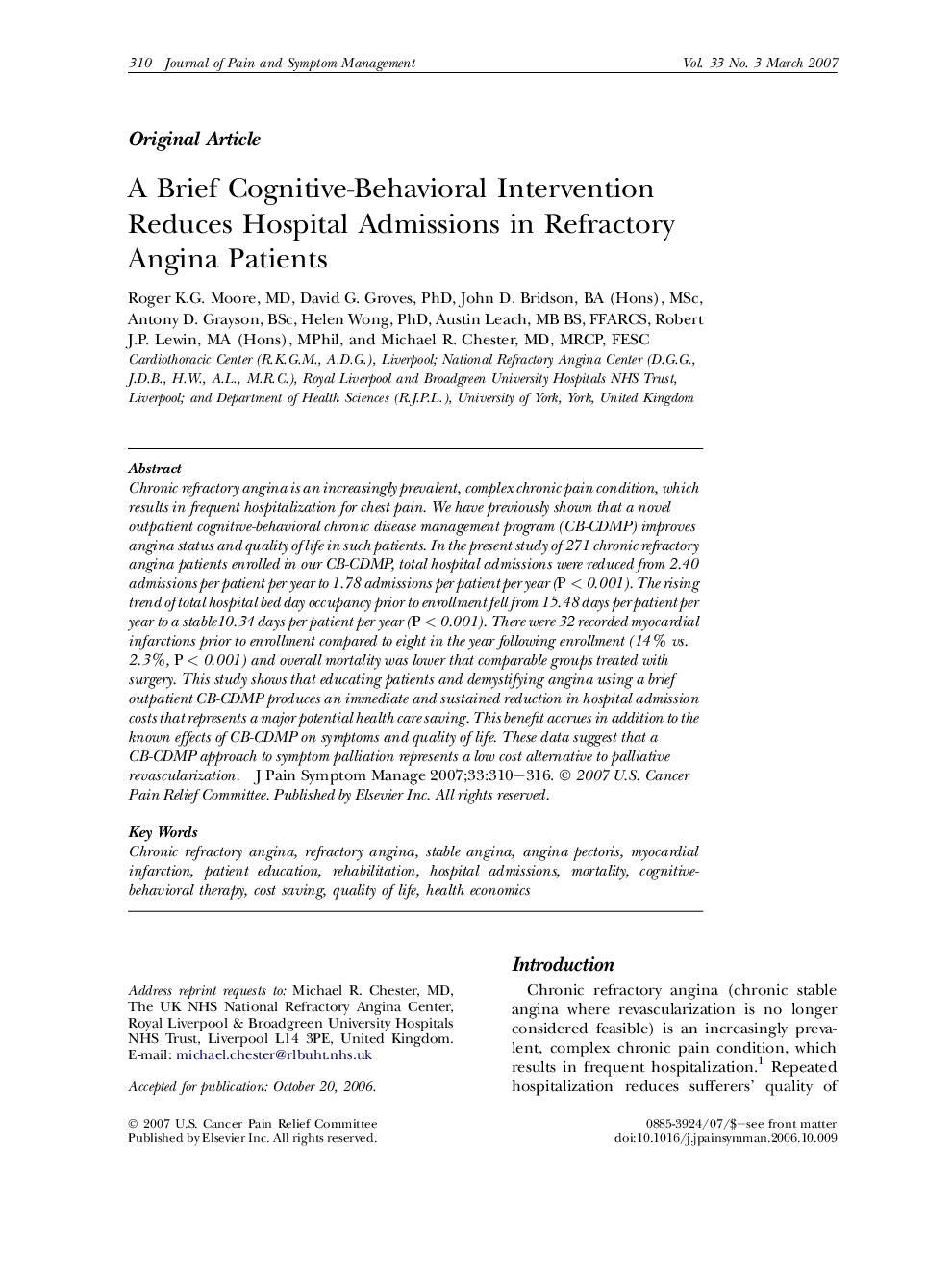| Article ID | Journal | Published Year | Pages | File Type |
|---|---|---|---|---|
| 2724806 | Journal of Pain and Symptom Management | 2007 | 7 Pages |
Chronic refractory angina is an increasingly prevalent, complex chronic pain condition, which results in frequent hospitalization for chest pain. We have previously shown that a novel outpatient cognitive-behavioral chronic disease management program (CB-CDMP) improves angina status and quality of life in such patients. In the present study of 271 chronic refractory angina patients enrolled in our CB-CDMP, total hospital admissions were reduced from 2.40 admissions per patient per year to 1.78 admissions per patient per year (P < 0.001). The rising trend of total hospital bed day occupancy prior to enrollment fell from 15.48 days per patient per year to a stable10.34 days per patient per year (P < 0.001). There were 32 recorded myocardial infarctions prior to enrollment compared to eight in the year following enrollment (14% vs. 2.3%, P < 0.001) and overall mortality was lower that comparable groups treated with surgery. This study shows that educating patients and demystifying angina using a brief outpatient CB-CDMP produces an immediate and sustained reduction in hospital admission costs that represents a major potential health care saving. This benefit accrues in addition to the known effects of CB-CDMP on symptoms and quality of life. These data suggest that a CB-CDMP approach to symptom palliation represents a low cost alternative to palliative revascularization.
